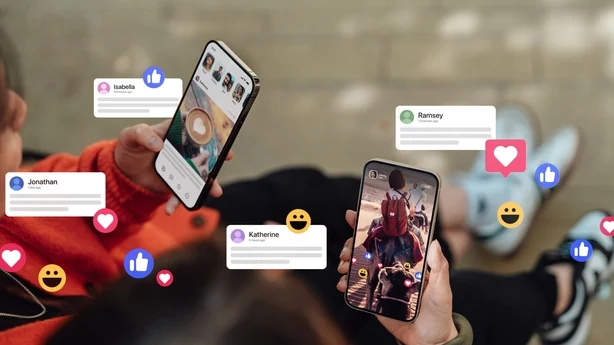Stay updated with the latest beauty tips, trends, and news from our salon experts. Our blog is your go-to source for all things beauty.
Dr. Lollie Mancey delivered a keynote presentation at the 2025 Pendulum Summit in Dublin's Convention Centre where she spoke about the future of AI, the toll technology is taking on our sleep habits, and what the future might look like.
"Get your phone out of the bedroom", Dr. Mancey insists. "The phone has no place in the bedroom last thing at night or first thing in the morning. Get an old fashioned alarm clock. You will still hear [the phone] if it rings in the middle of the night in the next room, but get it away from you so you aren't scrolling until you go to sleep."
"There's data and research that shows us that if we pick up a phone in the first 20 minutes, our brain is seeking out the phone - or the dopamine from the phone - more that day."

As it stands, the average Irish adult are on their phones between three and five hours a day.
"It's quite terrifying in terms of: what else aren't we doing?" says the futurist, who later explains that we have ended up giving huge chunks of our time to these 'time-saving' machines.
"Your phone is not the problem," she clarifies. "It's the usage and the way that we look at it. The connectedness through the phone is incredible; our phone is an educator, we can upskill through it, it's going to help us fix some of the problems we have in society, for sure, but we can't be over-reliant on it."
So, what should we be doing with our time if not scrolling?
"Get out into nature, connect to your neighbours, have hobbies, do community initiatives - all the things that make us happy," she smiles. "We think this stuff [technocology] makes us happy, it's actually acts of service.
"Going back to that intrinsic need in us to give to others and to connect to others. If we stay on that trajectory and we concentrate on the economy of kindness, as it were, and that connectivity, we're going to be fine."

As it turns out, younger generations might be making moves towards going off-grid already.
"Gen Z are a bit more discerning," Dr. Mancey confirms. "They're starting to move away from their phones in larger and larger numbers. Some of them have the old-fashioned flip phone, or the burner phone, and a smart phone together."
"They're moving back to this idea that I was calling 'collective effervesence'," she continues. "The joy of being together as human beings. For us, we've always had that in society, and we need to be very careful that technology doesn't take us away from that. We were literally wired for social connection so we must connect in real time."
As Programme Director and Entrepreneurial Specialist at University College Dublin's Innovation Academy, Dr. Lollie is all too aware of the changes society can expect in the near future.

From meta-humans working in the office, to helpful AI assistants sitting at the dinner table, the futurist believes that there are some big advances coming our way.
Rather than try to avoid the inevitable, Dr. Manley advises people to become self-aware of their own behaviours, think critically about the information AI delivers, and get that phone out of the bedroom!
"The phone isn't the issue, the technology isn't the issue," she reminds us, "it's our usage of it and how we understand it. We need to be smarter in understanding that, we're sitting ducks otherwise."